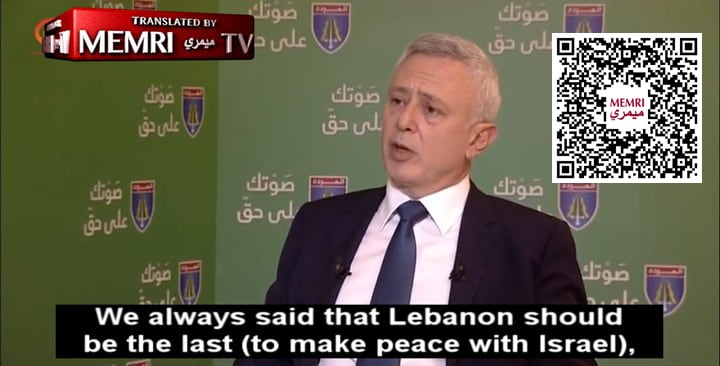
Lebanese politician Suleiman Frangieh, the leader of the Marada Movement, in a May 12, 2022 interview on Mayadeen TV (Lebanon) that since 9/11, the Arabs have been busy with sectarian conflict and have forgotten their hostility towards Israel. He claimed that it was America that sowed the seeds of conflict between Sunnis and Shiites and that the Lebanese people have forgotten their "Arab identity." In addition, Frangieh said that what unites "pan-Arabs" is the liberation of Palestine and hostility towards Israel. In addition, he said that even during the 1990s when the late Syrian President Hafez Al-Assad spoke about peace, Frangieh had always said that Lebanon should be last to make peace with Israel and the Christians should be the last to support it.
Suleiman Frangieh: "Before 9/11, we would not hear about the Sunnis and the Shi'ites. Rather, we would hear about the Muslims and the Christians in Lebanon. You could say that the Arabs in the entire region were in agreement about their hostility to Israel."
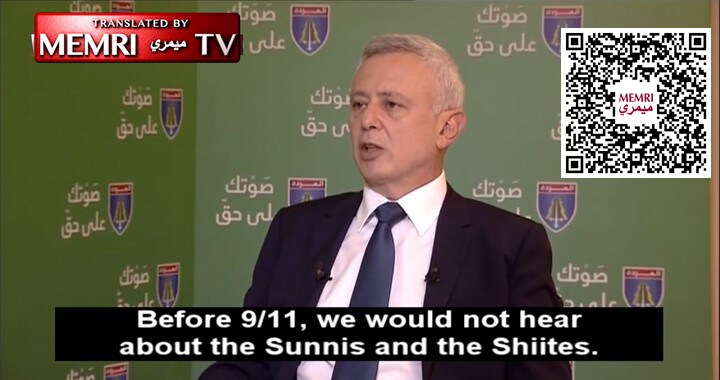
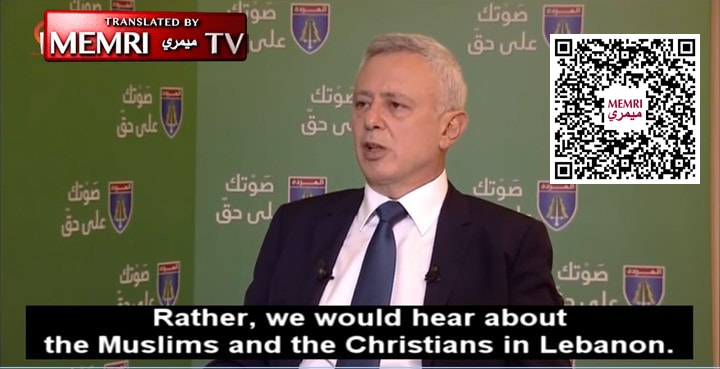
Interviewer: "In the matter of the resistance..."
Frangieh: "Then America came along, and sowed the seeds of the conflict between Sunnis and Shi'ites in the region. They used this conflict to divide the region..."

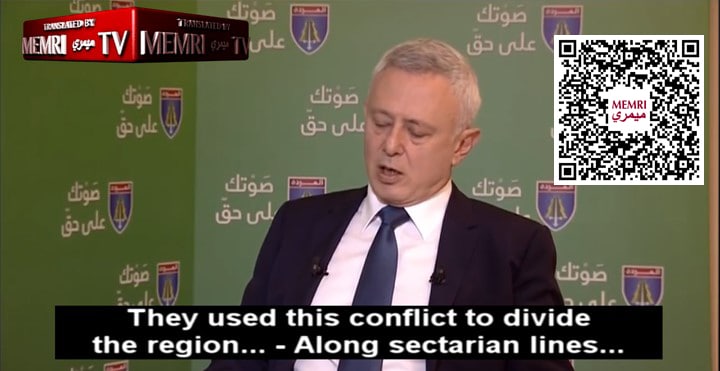
Interviewer: "Along sectarian lines..."
Frangieh: "The entire region has become engulfed with sectarian hatred. We have forgotten our hostility towards Israel, we have forgotten our Arab identity. We hope that the focus returns to our hostility to Israel and to the liberation of Palestine. This is what unites all the pan-Arabs.
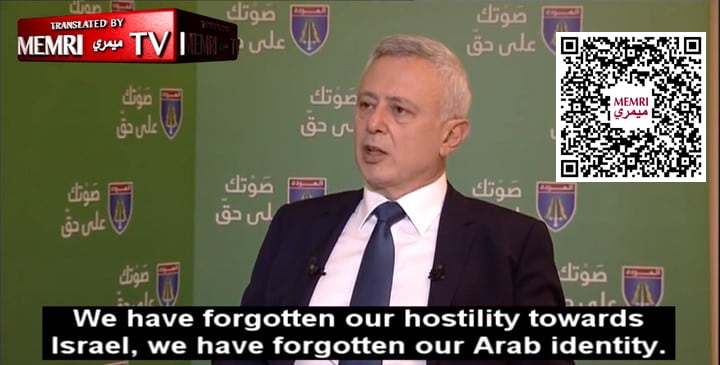


[...]
"Today's atmosphere is not an atmosphere of peace. It is an atmosphere of war, or maybe one of neither war [nor peace]. In any case, it is not an atmosphere of peace. Maybe one day... In the 1990s, the late President Al-Assad talked about peace. There were negotiations back then. We always said that Lebanon should be the last [to make peace with Israel], and within Lebanon, the Christians should be the last to support it. This is what I am saying."
